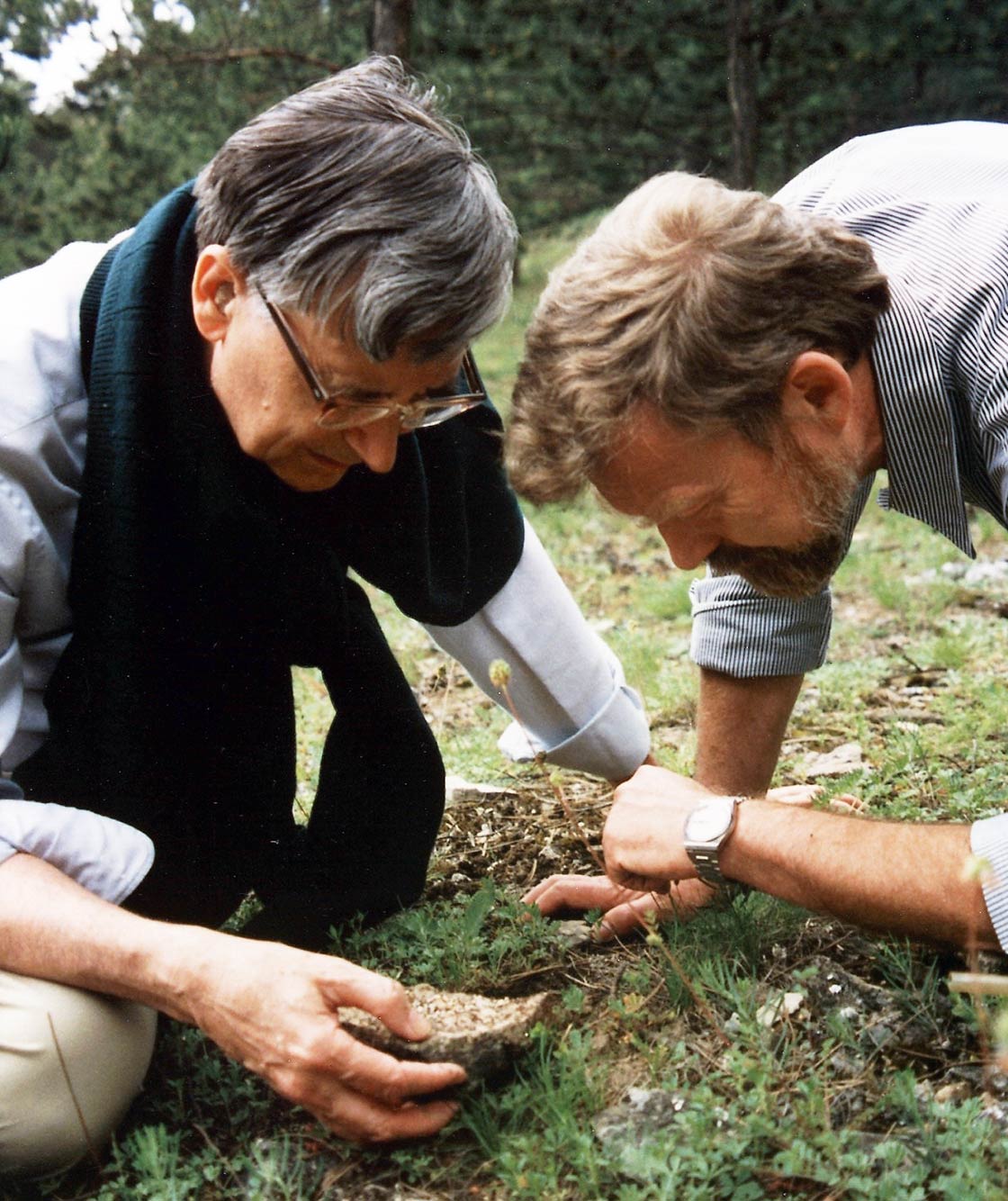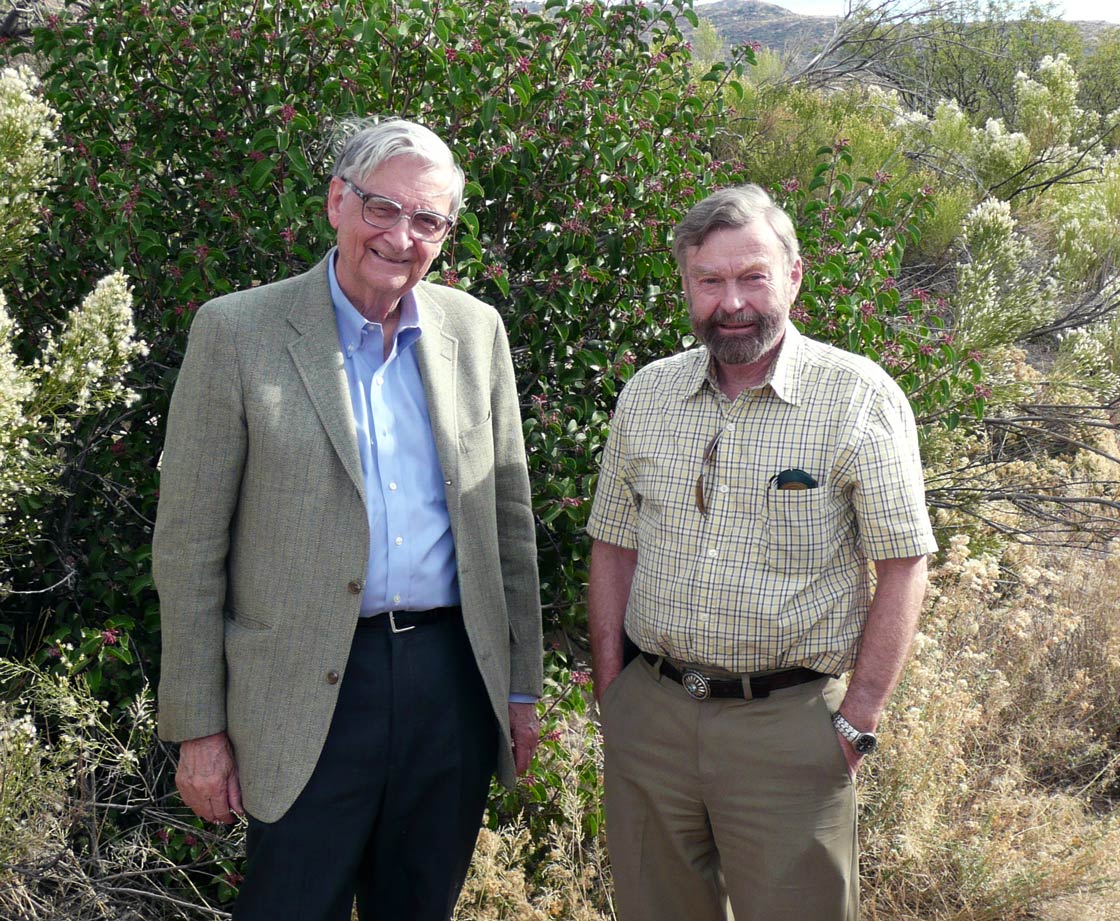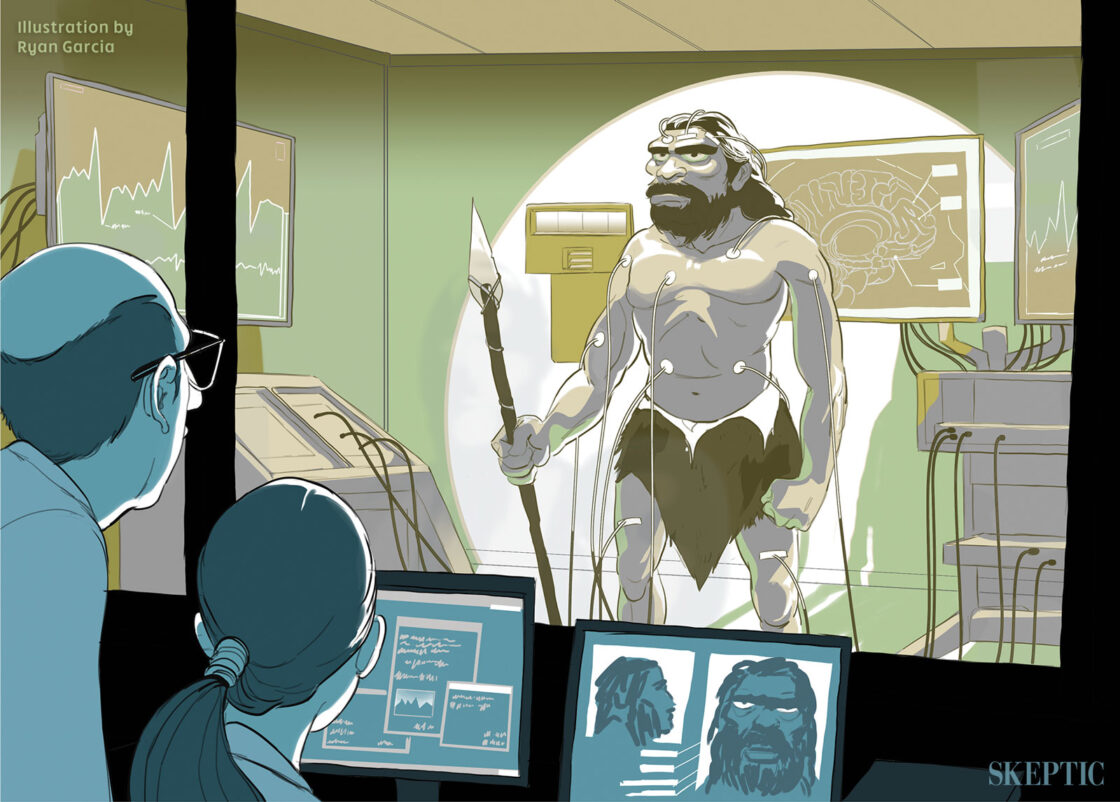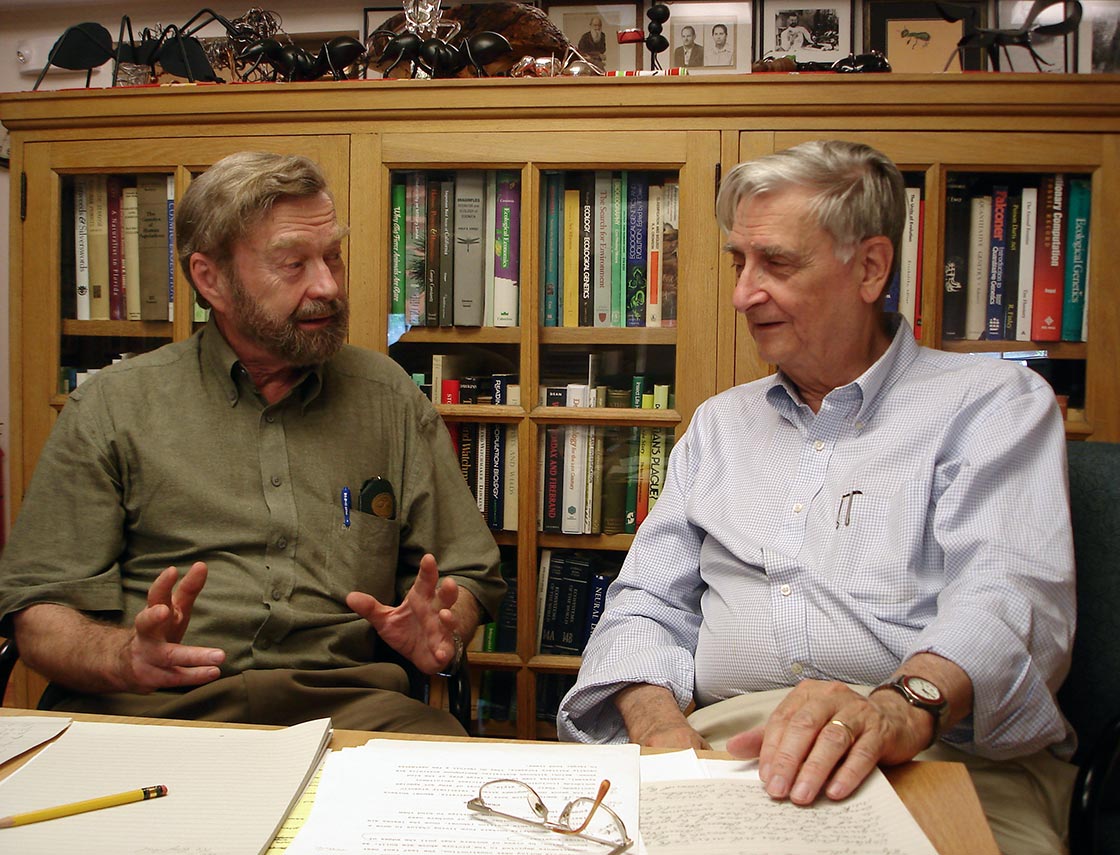Correspondence exchanged between the late Harvard evolutionary biologist Edward O. Wilson and the Canadian psychologist John Philippe Rushton in the 1980s was recently revealed in papers Wilson had donated to the Library of Congress. Selected portions of these letters were quoted in essays written by Stacy Farina and Mathew Gibbons in the magazine Science for the People (February 1, 2022), and by Mark Borrello and David Sepkoski in the New York Review of Books (February 8, 2022). Both essays, although different in perspective and tone, highlight the support Wilson offered to Rushton when he was under attack by academic opponents of Rushton who did not agree with his claims concerning innate cognitive and behavioral differences between “races” in the US American population (along with some of Rushton’s far-reaching idiosyncratic conclusions). Rushton was under investigation by his university for serious misconduct charges that may have threatened his position and asked Ed (among many others), who he knew was once also attacked for his writings, to help him.
I knew Ed Wilson quite well over many decades of collaboration on numerous research projects and books, such as The Ants, The Leafcutter Ants, Journey to the Ants, and The Superorganism. I think Ed reacted to Rushton’s situation as a man who had been traumatized from his own painful experience of being similarly attacked in the mid and late 1970s. For those who did not experience the ideologically heated atmosphere in certain circles at Harvard University after Ed Wilson’s landmark book Sociobiology was published 1975, I need describe some of the events and actions that might explain why Ed later felt he had to fight any ideologically motivated attacks against scientists, regardless of their political orientation. I begin with a personal recollection of one such event.
At an evening debate held at Boston University in 1976, the noted Harvard biologist Richard Lewontin leveled unsubstantiated charges of genetic determinism that leads to racism against Wilson. Melvin Konner, then a graduate student (today a well-known anthropologist, medical doctor, and successful author), asked Lewontin whether he denied that the basic facial expressions of human infants could be considered innately produced. Dick Lewontin reflexively and emphatically replied that there was not a shred of evidence to support this. I was amazed and raised my hand. At this moment, Dick saw me in the audience and before I could finish recounting all the literature providing hard evidence for Mel’s statement, Dick waved his arms and shouted “OK, OK, you obviously know more about this, so let’s move on.” Unfortunately, that was the point then, and is the point today, as these same unsubstantiated and unfortunate charges have resurfaced and have been picked up on the blogosphere and elsewhere, by people who obviously know little about Ed Wilson.
It was a point that Dick Lewontin himself acknowledged when he showed up at my office the next day, apparently eager to soften what he had said. Although I respected Lewontin as a scientist and colleague at Harvard, I did not appreciate his ideologically driven “sand box Marxism.” When I asked why he so blithely distorted some of Ed’s writings he responded: “Bert, you do not understand, it is a political battle in the United States. All means are justified to win this battle.” In fact, it is nonsense to claim that Ed Wilson’s comparative and evolutionary approach to behavior in any way endorses racism. This was a case of a scientist’s views being distorted to suit someone else’s ideological goals.
Sociobiology: The New Synthesis, as described by Roger Lewin in New Society (vol 56, No963, 1981), is “an audacious attempt to throw biology’s explanatory net of animal behavior around human social behavior, to marry biological and social sciences in a joint endeavor that would reveal the mysteries of human nature.” Wilson was trying to identify universals of human behavior that he speculated might be rooted in genetic predispositions. It was in the early days of the field, and he probably expressed such views too simplistically, referring to a gene for spite, a gene for altruism, etc. But this was the way model builders at the time worked. For example, they spoke of genetic loci, and their models were usually single locus models.
Anyway, such putative genetic blueprints for basic species-specific behavioral patterns are considered to be universal. By the 1960s and 1970s there was circumstantial evidence for some such traits, and Ed drew from this ethological knowledge. For example, in his studies of herring gulls, the ethologist Niko Tinbergen noted that when the chick perceived the mother gull’s yellow beak with a red dot, it promptly began pecking at it. This triggered the mother to regurgitate food for her chick. Tinbergen codified this sequence as follows: a sign stimulus triggers an innate releasing mechanism in the brain that leads to a fixed action pattern of behavior. In the case of the herring gull chicks, the red dot in contrast with the yellow beak of its mother acted as a sign stimulus that triggered an innate releasing mechanism in its brain to deliver a fixed action pattern of pecking at the red dot. In turn, the chick’s pecking acted as a sign stimulus for the mother that triggered an innate releasing mechanism in its brain to deliver a fixed action pattern of food regurgitation.

Edward O. Wilson (left) and Bert Hölldobler (right) in 1993
And not just gulls. Many species exhibit such heritable behavioral patterns, including humans. In essence, this is what Wilson outlined in the last chapter of Sociobiology, namely the possible basic genetic blueprint underlying human universals. When Wilson once was asked by a reporter about this, he said: “In rough terms, what we are talking about is that I see maybe 10% of human behavior as genetic and 90% environmental.” These are hardly the words of a genetic determinist, much less to, in the words of the Science for the People critics at the time, “reinvigorate theories which in the past provided an important basis for the enactment of sterilization laws and restrictive immigration laws by the United States between 1900 and 1930 and also for the eugenic policies which led to the establishment of gas chambers in Nazi Germany.”
In fact, there was nothing prescriptive in Wilson’s final chapter. I will also never understand how such a highly-regarded scientist as Richard Lewontin could lend his name to co-sign, along with Harvard professors Stephen Jay Gould, Ruth Hubbard, Jonathan Beckwith, and others, such utter nonsense, published as a letter in the New York Review of Books (November 13, 1975). Wilson correctly realized that this group was trying to pin blame on him by suggesting that he “joins the long parade of biological determinists whose work has served to buttress the institutions of their society by exonerating them from responsibility for social problems.”
Wilson responded to this by saying “I have done no such thing. In fact, I have taken care elsewhere to do just the opposite. In an article published in the New York Times magazine (on October 12, 1975, [one month before the letter by the Science for the People colleagues was published], I felt free to go well beyond the science in the book to discuss some of my personal feelings about the implications of sociobiology.” Here is what Wilson wrote:
The moment has arrived to stress that there is a dangerous trap in sociobiology, one which can be avoided only by constant vigilance. The trap is the naturalistic fallacy of ethics, which uncritically concludes that what is, should be. The ‘what is’ in human nature is to a large extent the heritage of the Pleistocene hunter-gatherer existence. When any genetic bias is demonstrated, it cannot be used to justify a continuing practice in present and future societies. Since most of us live in a radically new environment of our own making, the pursuit of such practice would be bad biology; and like all bad biology, it would invite disaster. Genetic biases can be trespassed, passions averted or redirected, and ethics altered; and the human genius for making contracts can continue to be applied to active, healthier and freer societies. Yet the mind is not infinitely malleable. Human sociobiology should be pursued, and its findings weighed as the best means we have of tracing the evolutionary history of mind.
I always thought that a basic tenet of collegiality is to first discuss differences of opinion in person, especially when the opposing party are members of the same university, even the same department. The Lewontin lab was located on the third floor of the MCZ-Laboratories (Museum of Comparative Zoology), and Wilson had his office on the fourth floor. What prevented Lewontin, Gould, and other members of Science for the People from coming up and knocking on Ed’s door to discuss with him their disagreements? In a letter written to the New York Review of Books and sent on November 10, 1975, Wilson explained that he felt “that actions of the letter writers represent the kind of self-righteous vigilantism which not only produces falsehood but also unjustly hurts individuals and through that kind of intimidation diminishes the spirit of free inquiry and discussion crucial to the health of the intellectual community.” Thus, Science for the People launched its political war, and as is so often the case with ideologues, they erected a straw man to tear down with bravura.
I could go on with many more apposite quotes. The point is I never found one statement in his writings that would indicate that Ed Wilson followed a racist ideology. This was the invention, or rather the falsehood, created by the International Committee Against Racism (INCAR), members of which physically attacked Ed at the beginning of an invited lecture he was to deliver at a meeting of the AAAS (American Association for the Advancement of Science). This is intellectual fascism. In fact, even Lewontin made clear that Wilson is not a racist. As Lewontin said in an interview with The Harvard Crimson on December 3, 1975: “Sociobiology is not a racist doctrine, but any kind of genetic determinism can and does feed other kinds, including the belief that some races are superior to others. However, this is very far from Wilson’s intuition. Because Wilson is concerned with the universals of human nature — his chief point is that we are all alike.”

Bert Holldobler (left) and Edward O. Wilson (right) in 1993
One more point I need to make. Ed Wilson was also accused by Science for the People of using research results derived from his studies of ant behavior to interpret human nature. Occasionally in popular narrative Ed has made humorous comparisons, or pointed to a simplified analogy (I plead guilty of that too), for example comparing ant societies and human societies, but I challenge my colleagues to demonstrate to me where Ed in his scientific writing has drawn such alleged conclusions. Sometimes the analogies between social organisms are striking, but surely, we all know that these are superficial analogies. What is most striking in behavioral ecology more generally is that often convergent solutions to certain environmental challenges evolve independently in different animal groups, and that might also be the case for Homo sapiens.
Having now looked at the work by Rushton with greater attention, it is clear to me that Ed could not have paid much scrutiny to Rushton’s work but rather was motivated by the impression he got from Rushton’s own description of his plight, namely, that he was being persecuted by far-left wing ideologues, as Wilson himself had been after publication of Sociobiology. Note too that Rushton had strong academic credentials as a former John Simon Guggenheim Fellow and a fellow of the Canadian Psychological Society. Nevertheless, Ed’s recommendation of a manuscript submitted by Rushton to the journal Ethology and Sociobiology, in which Rushton wrongly applied Wilson’s r-K selection model, was in my opinion a serious misjudgment. When Wilson encouraged Rushton to pursue this line of investigation and advised him not to be discouraged, at one point warning him “the whole issue would be clouded by personal charges of racism to the point that rational discussion would be almost impossible,” my guess is that Wilson’s response was colored by his own and painful experience and decision to continue with his work despite vicious attacks from Science for the People, rather than an in-depth examination of the of Rushton’s paper. If we could ask Ed today, I am sure he would say: “I made a mistake, I was wrong.” But a misjudgment made when reviewing a paper for a journal does not make Ed Wilson a racist or a promoter of race science!
In fact, in a note to Nature (Vol. 289, 19 February 1981) Wilson wrote “I am happy to point out that no justification for racism is to be found in the truly scientific study of the biological basis of social behaviour. As I stated in On Human Nature (1978), I will go further and suggest that hope and pride and not despair are the ultimate legacy of genetic diversity, because we are a single species, not two or more, one great breeding system through which genes flow and mix in each generation. Because of that flux, mankind viewed over many generations shares a single human nature within which relatively minor hereditary influences recycle through ever changing patterns, between the sexes and across families and entire populations.” In the 2004 edition of his book On Human Nature Wilson wrote: “most scientists have long recognized that it is a futile exercise to try to define discrete human races. Such entities do not in fact exist. Of equal importance, the description of geographic variation in one trait or another by a biologist or anthropologist or anyone else should not carry with it value judgements concerning the worth of the characteristics defined.”

Edward O. Wilson (left) and Bert Hölldobler (right) in 2009
In the recent New York Review of Books article, “Ideology as Biology,” by the historians of science Mark Borrello and David Sepkoski, I feel the authors make too much out of Wilson’s encouragement of Rushton which, as I said, was probably motivated more by his own painful experiences with politically provoked distortions of his work and unfair attacks, than by in depth scrutiny of his correspondent’s views. Looking at Rushton’s work today, when most experts agree that these kinds of IQ tests are biased and have to be taken with a grain of salt, Wilson’s positive response to Rushton’s pleas appears to me naive. I assume that he realized this later too, because to my knowledge he never cited Rushton’s work nor mentioned it in conversations I had with him.
Given Wilson’s numerous articles, books, lectures and public statements, which contain nothing even remotely supportive of racism, it seems unfair to zero in on this limited correspondence with a single colleague to be waved like a red flag to tarnish a scholar’s reputation. This may not be what Borrello and Sepkoski intended, but their disclaimer that they wanted to distance themselves from any scarlet letter activism and “cancel culture,” was gainsaid by the prevailing theme of their analysis that Ed Wilson was closely aligned with a racist, which in today’s culture of hyper-sensitivity to all matters of race and racism, they had to know would scuttle the reputation of one of the greatest scientists of our time. Such self-righteous vigilantism is highly unjust and distortive. ![]()
Also of interest … read Mark Moffett’s description of how the kind of comparisons E. O. Wilson made between ants and humans can be scientifically valuable.
About the Author
Bert Hölldobler (Hoelldobler) is a German-American biologist who studies the diversity of social organization in insects, in particular ants, which primarily served as models for his work in the fields of behavioral physiology, chemical ecology, behavioral ecology, sociobiology and evolutionary biology. This multi-faceted research has resulted in many new discoveries about multimodal communication and orientation behavior in animals, the dynamics of social structures and the evolution of animal communities.
Before he joined the State University of Arizona in 2004, he was Professor of Biology and Alexander Agassiz Professor of Zoology at Harvard University (1973–1990) and he held a chair as Professor of Zoology at the University of Würzburg, Germany (1989–2004).
Hölldobler is a member of several national and international Academies, among them the German National Academy of Sciences (Leopoldina), the American Philosophical Society, the American Academy of Arts and Sciences, and the National Academy of Sciences (USA). He is the author of several books. For his book THE ANTS, which he co-authored with E. O. Wilson, he received the Pulitzer Prize (1991) for non-fiction writing. The book Journey to the Ants (also co-authored with E. O. Wilson) was awarded the Phi Beta Kappa Prize. His book, The Superorganism, (also with E. O. Wilson), was chosen as the New York Times Notable Book of the Year (2008). It was also chosen as one of the stand-out books of 2009 by the Financial Times. His more recent book (with E. O. Wilson) The Leafcutter Ants: Civilization by Instinct was published in fall 2010. He has published more than 300 scientific papers, review-articles and essays. He is the recipient of many prizes, among them the Gottfried Wilhelm Leibniz Prize, one of the highest science prices in Europe, the Alfried Krupp Science Prize, the Cothenius Medal of the German National Academy of Sciences and the Federal Medal of Merit First Class of Germany. At ASU Hölldobler was a co-founder of the Center for Social Dynamics and Complexity, and the new Social Insect Research Group at the School of Life Sciences.
This article was published on April 5, 2022.


















Rushton attempted to explain facts that few dare to acknowledge. There is much more than just IQ. He too deserves a fair hearing instead of being dismissed as a crank.
This article is greatly appreciated.
Perhaps the most distressing takeaway is that those who profess to be scientists can be so unscientific. To a lay person, the key tenet of science supposedly is to consider all the facts that can be gathered and analyze them without resorting to preconceptions. This is seen as fundamental to moving inexorably to a better understanding of the true nature of the Universe we find ourselves in.
The fact that a group of Harvard based “scientists” would not make the effort to walk up one flight to discuss their concerns with their colleague before publishing a letter of criticism suggests they had no interest in determining the truth of the situation and only wanted to prevail in an argument (one that they appear to have concocted unilaterally). This is a tactic seen widely in high school debaters but should never be seen in scientists or any other professional academician at Harvard or any other institution that deems itself to be a purveyor of higher learning.
” I will also never understand how such a highly-regarded scientist as Richard Lewontin … ”
That’s a puzzling problem you have, considering your previous quote: “All means are justified …”
With all due respect – sincerely – what is there about Marxism you don’t understand? At the time, he told you “how.”
Thanks Bert for this inspired defense of E.O. Wilson. For me the key point is Lewontin coulld have easily walked up to E.O. Wilson’s office and entered into a discussion with Ed about the claims made by the Science for the People group but neither he nor Stephen J.Gould nor any other member of Science for the People did this. It speaks to the indefensibility of the Science for the People and their assertions that they did not.
Bert Hölldobler ==> Thank you for this defense of Wilson and the well-deserved thrashing of his detractors.
Academia has lost its way and is now wandering in the wilderness, being blown this way and that by every breeze of popular culture.
Can Hoelldobler please confirm he has read Jensen AR Precis of bias in Mental Testing BBS 1980 3:325-371 and the extensive critical commentaries therein?
when most experts agree that these kinds of IQ tests are biased and have to be taken with a grain of salt
This does not accurately reflect expert opinion on IQ tests. See Rindermann’s survey:
https://www.hoplofobia.info/wp-content/uploads/2019/03/2020-Survey-of-expert-opinion-on-intelligence.pdf